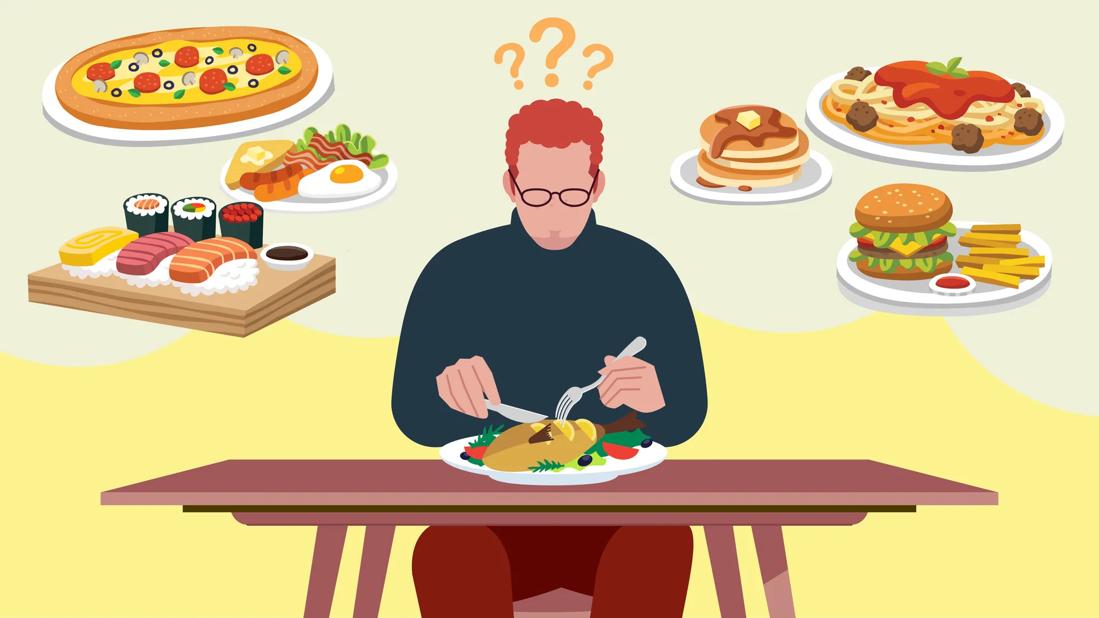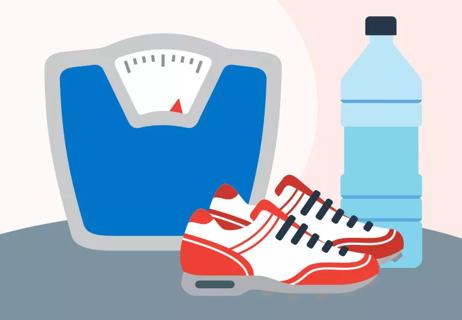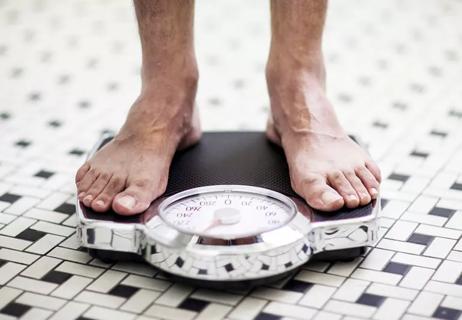Constantly thinking about food can make it hard to maintain a healthy weight and can lead to other health issues

It’s dinner time and you’re not sure what to eat. It can be tempting to open a food delivery app and scan the selections of fast food.
Advertisement
Cleveland Clinic is a non-profit academic medical center. Advertising on our site helps support our mission. We do not endorse non-Cleveland Clinic products or services. Policy
Should you just order a burger and fries or should you bake that salmon you have defrosting in the fridge?
You may have some version of that back-and-forth conversation with yourself many times a day. And it’s just one example of the internal struggle known as “food noise,” which is when your thoughts about what to eat become excessive or harmful.
So, how do you quiet the food noise in your head?
Endocrinologist Reena Bose, MD, explains what we know about food noise, how it can impact our health and what you can do to stop it.
While there’s no official definition of “food noise,” it’s something that many of us experience.
“Food noise is a feeling of continuous hunger,” explains Dr. Bose.
You may find it difficult to feel full or satisfied after eating. For example, after you’ve had a meal, you may instantly start thinking about your next snack or next meal.
“It’s a preoccupation with food,” she adds. “Unfortunately, this preoccupation can lead to an ingestion of large amounts of calories, and eventually lead to obesity and other medical conditions.”
Food noise is a vicious cycle that tends to happen when you make poor food choices such as eating ultra-processed foods like doughnuts, candy, ice cream and chicken nuggets.
Advertisement
“The consumption of ultra-processed food seems to activate your hedonic pathway or your reward pathway,” explains Dr. Bose. “Processed food gives you a reward, and a reward means you want to keep going back and continue the consumption of these processed foods.”
So, what can trigger food noise? Internal cues like your hunger hormones can lead you to think about food. But external cues such as catching a whiff of a freshly baked apple pie or seeing a social media ad for a pizza company can activate a desire to eat.
“An external, visual cue can translate to you possibly acting on the impulse — you’ll go ahead and order the pizza,” she illustrates.
Food noise can make it challenging to maintain a healthy weight.
“Food noise can make you feel like you’re hungry all the time. And if you don’t feel full, you end up eating much larger meals,” notes Dr. Bose. “As a result, you may end up with obesity. And this can also lead to sleep apnea, high blood pressure and high cholesterol.”
Dr. Bose says it’s possible to reduce how food noise impacts your life.
Focusing on a healthy diet (that means limiting or avoiding processed foods) starts with meal planning and prepping, says Dr. Bose.
“If you don’t have healthy foods in your home, it’s not going to be on your plate,” she stresses.
Start out by making a game plan of your meals for the week and then shopping for those ingredients. Washing and cutting fruits and vegetables ahead of time can make it easier to cook healthy meals.
Another pro move? Hide any unhealthy snacks (like that bag of potato chips or a package of cookies) so you won’t be as tempted to reach for them.
Dr. Bose says she often sees people whose eating habits are all over the place. For example, they may be scared to eat because they think they’ll gain weight, or they wait until they’re very hungry before they eat.
“You want to eat on time and eat intentionally. Why is that important? Because food is fuel for the body. If you don’t get fuel, your body’s metabolic rate will slow down,” she explains. “If you’re eating on time, you’re going to feel healthier. You’re going to be able to exercise more because you have more energy.”
How often you exercise or what type of exercise you do may be affected by your weight.
“You may have painful knees or hips or have limited mobility, but it’s important to still find ways for you to start building muscle mass,” advises Dr. Bose. “An exercise physiologist can work with you and any limitations to help you move, strengthen your muscle groups and preserve muscle mass.”
Advertisement
There’s a good chance you experience some kind of stress in your everyday life. But dealing with all that stress can lead to making poor decisions when it comes to what to eat.
“When you’re dealing with a lot of stress in your life, it becomes very hard to manage your life in a healthy fashion,” relates Dr. Bose. “Focus on managing your stressors. This can include talking to a psychologist who can help you deal with emotional hunger.”
Other ways to reduce stress can include listening to music, being in nature or connecting with others.
Consider how well you’re sleeping and if you can make any necessary adjustments to your bedtime routine to help make sure you’re getting quality sleep each night. Changes can include meditating before bed, cutting back on what you eat and drink before bed, and keeping electronics out of the bedroom.
“If you’re not getting a good quality, restful sleep, it becomes very hard to adopt healthy lifestyles,” states Dr. Bose. “When you’re tired or fatigued, you tend to gravitate toward processed and ultra-processed foods.”
You’ve probably heard of semaglutides such as Ozempic® and Wegovy™ and how those medications can be used to manage Type 2 diabetes and obesity. But can these medications help reduce food noise?
Advertisement
“Semaglutide medications tend to activate certain receptors, which promote the release of the hormone GLP-1,” explains Dr. Bose. “GLP-1 tends to decrease your hunger and decrease your appetite. It allows your brain to have much better control over your hunger cues.”
She adds that people who use semaglutides have reported feeling satisfied after eating and noticed a reduction in how often they think of food and food cravings.
But a word of caution: The reduction of cravings is temporary. If you stop taking semaglutides, your cravings are more than likely to return.
That’s why Dr. Bose says it’s important to focus on lifestyle changes that can help you make smarter choices when it comes to what you eat.
It may seem like food noise is affecting all of your dietary decisions, but that doesn’t have to be the case. In addition to focusing on lifestyle changes, a medication to help with weight management may work for you.
“If you’re struggling with food noise and it’s impacting your weight, talk to your primary care physician,” recommends Dr. Bose. “They can refer you to weight management specialists, which includes obesity medicine physicians, dietitians, exercise physiologists and psychologists — all part of a team who can help customize treatment plans for you during your weight loss journey.”
Advertisement

Sign up for our Health Essentials emails for expert guidance on nutrition, fitness, sleep, skin care and more.
Learn more about our editorial process.
Advertisement

No one diet is right for everyone — but the Cleveland Clinic Diet app meets your personalized needs

Hormones, water retention and even exercise can play a part in daily weight changes

Having obesity brings long-term health risks no matter your fitness level

Consistency is a big part of weight tracking

Keto can reduce blood sugar, but that doesn’t mean it’s right for everyone

Cravings are a natural response to hormonal changes, but giving into them may make you feel worse

Alternating between periods of eating and fasting may benefit your health

Eating a healthy diet, reducing stress, and focusing on exercise and sleep can help keep your digestive system in top form

Even small moments of time outdoors can help reduce stress, boost mood and restore a sense of calm

A correct prescription helps your eyes see clearly — but as natural changes occur, you may need stronger or different eyeglasses

Both are medical emergencies, but they are very distinct events with different causes